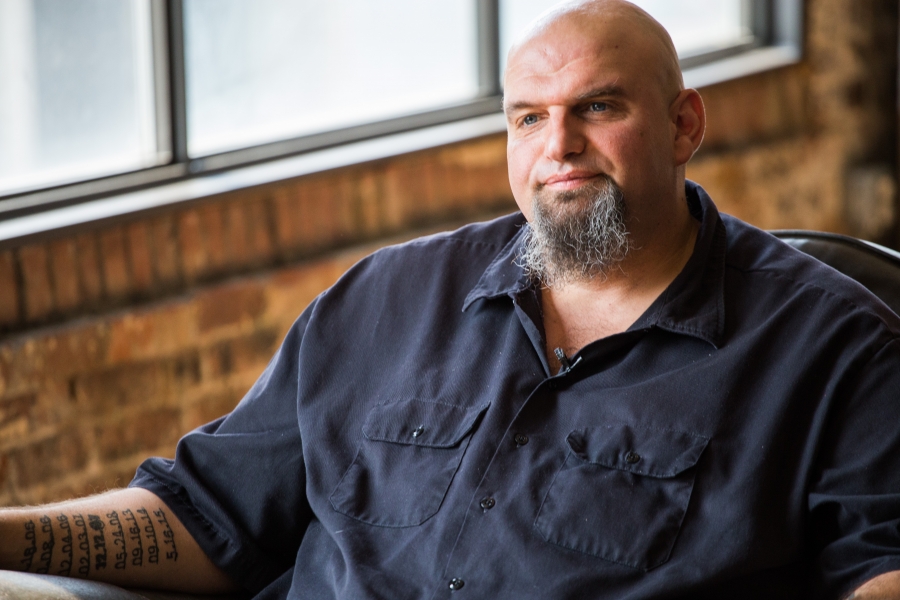PGN: Do you support the Equality Act?
JF: Yes, very much. I would consider myself a champion of all LGBT rights and policies. As a small-town mayor, I did the first wedding ceremony in the state by an elected official. This was in 2013, when it was still technically illegal [in Pennsylvania]. Gov. [Tom] Corbett took some pot shots, like, “Wait ’til the voters get a hold of you.” There was a lot of rhetoric and intensity surrounding that decision, whereas I felt we finally had an opportunity to make a statement here in Pennsylvania to support marriage equality. When Montgomery County began issuing those licenses back in 2013, I was like, “Hey, send them our way for the ceremony,” and that’s what happened in August of 2013.
PGN: How would you advance the Equality Act?
JF: In terms of who we’d speak to legislatively, if we ever got to vote on a Supreme Court justice, that would be an issue that would be very important to me. I think we need to get to a place where we have more gay legislators in the House and Senate.
PGN: Does Braddock have an ordinance including protections for LGBT people from discrimination?
JF: We don’t.
PGN: Is there a general anti-bias ordinance on the books for Braddock?
JF: I believe so. It’s never really come up in that sense. We’ve always been very open and tolerant.
PGN: How would you strengthen hate-crime reporting for violence against LGBT people?
JF: If you commit a crime against somebody based on their sexual orientation or their gender identity, that is the definition of what a hate crime is. There shouldn’t be any gaps in terms of eligibility for that kind of charge.
PGN: How would you help decrease violence against LGBT people, particularly transgender people of color?
JF: Just being an advocate and taking a moral stance on the cruelty and absurdity of treating anybody differently based on any of those factors. I’d like to be a strong advocate for that, and have been a strong advocate.
PGN: What needs to be done to combat LGBT harassment and bullying in schools?
JF: In terms of awareness, I was a huge fan of Dan Savage’s “It Gets Better” project. The federal government has a long history of helping shape regulations based on having strings attached to their funding. I absolutely would support a stringent federal guideline across the board to make sure that, if you’re going to get federal dollars, these protections and services need to be present in the school to make sure that this kind of bullying doesn’t occur; and if it does, there are resources to address it.
PGN: How would you address HIV/AIDS, particularly in minority communities?
JF: There need to be more guidelines and protections to prevent drug companies from gouging pharmaceutical prices. There was that dirtball that jacked up the price of certain drugs [that could be used to treat HIV]. Medical treatment for that has to be affordable to everybody, no matter what socioeconomic rung. Even though it hasn’t affected me personally, HIV/AIDS literally changed the trajectory of my life. It was one of the defining events of my life when I was introduced to a little boy [through Big Brothers Big Sisters of America]. He was 8 at the time. This was 1994. His father had recently died of AIDS. His mother was in the final stages. I promised his mother before she died that I would do everything I could to make sure he made it to college. He graduated in 2009 from Washington and Jefferson College in Pittsburgh.
PGN: What do you see as legislative priorities for the LGBT community after marriage equality?
JF: I love the anti-conversion therapy laws. I would support a federal ban on conversion therapy. I’d support stringent anti-hate legislation to protect those communities, as well.
PGN: Why do you think the LGBT community should vote for you?
JF: Of all the three candidates in the race, I have the strongest actual record. I quite literally risked my professional career for standing up for that community. I’ve been a longstanding supporter.
John Fetterman is mayor of Braddock, Pa.
